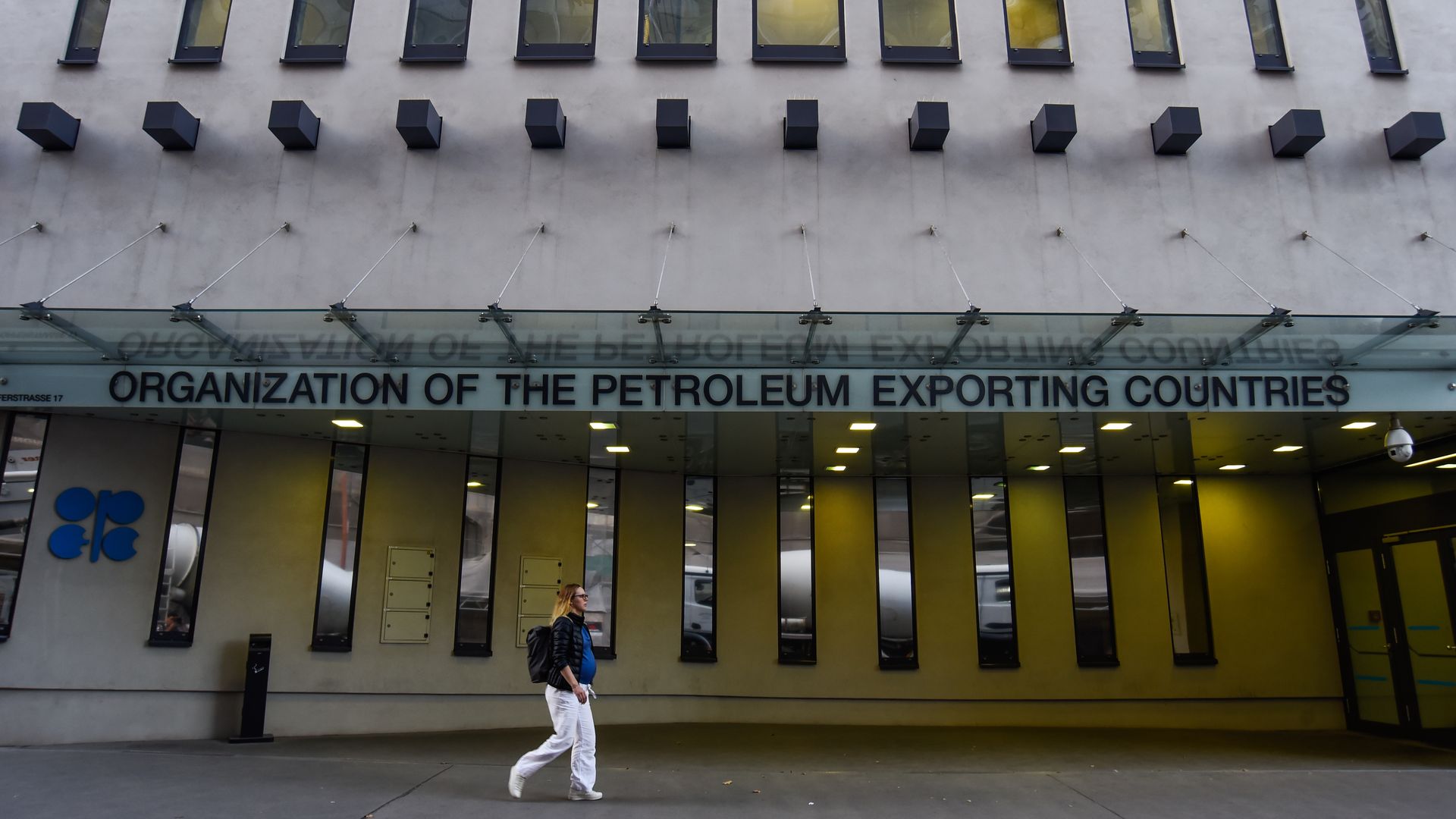Dec 9, 2019 - Energy & Climate
OPEC prevents the bottom from dropping out
Add Axios as your preferred source to
see more of our stories on Google.

Photo: Omar Marques/SOPA Images/LightRocket via Getty Images
Add Axios as your preferred source to
see more of our stories on Google.

Photo: Omar Marques/SOPA Images/LightRocket via Getty Images